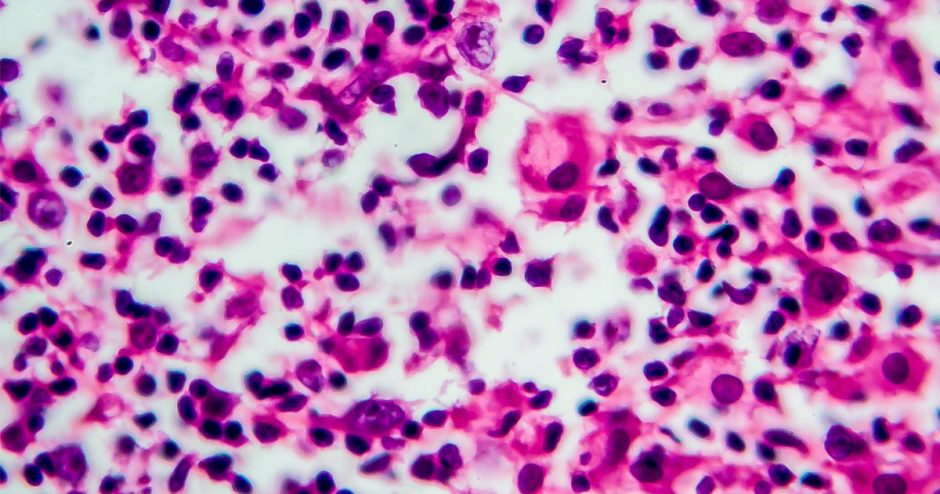
UBC Faculty of Medicine researchers have discovered a new way to better predict treatment outcomes in patients with relapsed and refractory, or treatment-resistant, classical Hodgkin lymphoma.
The recent study, published in the Journal of Clinical Oncology, uncovers a new class of “spatial” biomarker that sheds light on the unique interactions between cancer cells and nearby tissue, known as the tumour microenvironment.
“Understanding the exact architecture of a tumour’s environment – the tumour cells, surrounding cells and how they interact – provides a better resolution and more complete data on cancer cells than we have had before,” said senior author Dr. Christian Steidl, professor of pathology and laboratory medicine at UBC’s faculty of medicine and research director of the Centre for Lymphoid Cancer at BC Cancer. “This is an exciting discovery that will allow us to identify biomarkers to not only predict outcomes for patients with relapsed and refractory Hodgkin lymphoma, but hopefully for all people with cancer.”
Biomarkers are signs or signals in the body that provide information about health, disease or the effects of treatment.
This discovery could help physicians make better treatment decisions, which could lead to a better chance of a cure for people with cancer.
Dr. Christian Steidl
For the new study, Dr. Steidl and his team collaborated with researchers from Cedars-Sinai Medical Center in Los Angeles, California to analyze patient biopsies and characterize the cells making up the tumour microenvironment. The researchers measured the distance between cancer cells and nearby healthy cells, and used this spatial information in their models to predict patient outcomes.

This work extends previous studies which have demonstrated the importance of the tumour microenvironment. Specifically, a previous study from UBC researchers emphasized the importance of the macrophage, a type of white blood cell that clears dead cells and stimulates immune function, in classical Hodgkin lymphoma.
“With our methodology, we’re improving on the baseline quite significantly,” said Dr. Tomohiro Aoki, postdoctoral fellow in the department of pathology and laboratory medicine at UBC and lead author of the publication. “This biomarker assay, or comparable techniques to study tumor microenvironment architecture, can now be readily used for clinical trials and can also be tested in a very modern era of immunotherapy in Hodgkin lymphoma.”
Despite recent treatment advances, approximately one-third of patients with relapsed and refractory Hodgkin Lymphoma will not survive the disease.
The research team hopes this work will ultimately lead to the ability to profile a patient’s tumour, identifying what type it is and which cells it includes, and recommend a suitable treatment based on this profile. Researchers are currently testing immunotherapy checkpoint inhibitors, which block proteins that stop the immune system from attacking the cancer cells, to guide how to choose the treatment that will result in the best outcomes.
“This discovery could help physicians make better treatment decisions, which could lead to a better chance of a cure for people with cancer,” added Dr. Steidl. “This is the ultimate goal of this work.”
A version of this story was originally published by BC Cancer Research.
The work was made possible with support from the Terry Fox Research Institute, Genome Canada, Genome BC, Canadian Institute of Health Research, the Canadian Cancer Society Research Institute, the BC Cancer Foundation, and the Paul G. Allen Frontiers Group.